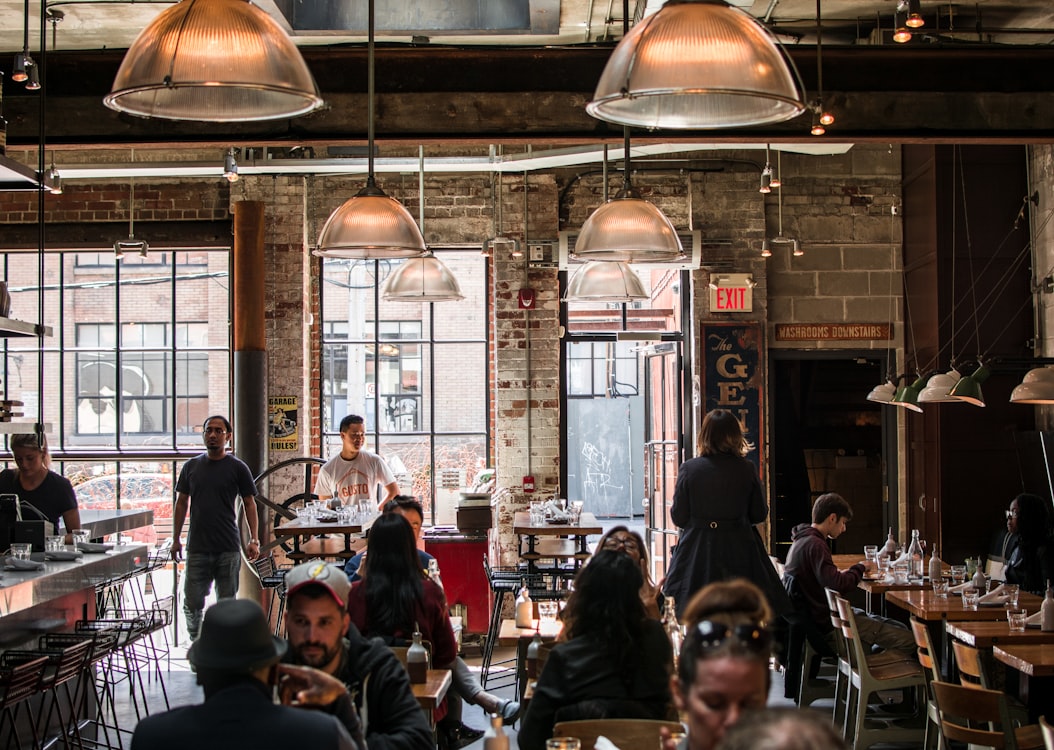January 14, 2025

Did you know that restaurants lose an average of 20% of potential revenue due to missed calls and inefficient order-taking? This startling statistic highlights a critical challenge facing the food service industry today. As restaurants strive to enhance customer experience and streamline operations, artificial intelligence (AI) is emerging as a powerful ally in boosting restaurant staff productivity.
AI technologies are transforming various aspects of restaurant operations, from customer service to kitchen management. By automating routine tasks and providing data-driven insights, AI allows restaurant staff to focus on what they do best: creating exceptional dining experiences.
Let's explore some of the primary ways AI is enhancing productivity in restaurants:
One of the most significant advancements is in order-taking. AI-powered systems can handle phone orders with remarkable accuracy, reducing the burden on staff and minimizing errors. For instance, Loman.ai, an AI phone agent for restaurants, integrates directly with point-of-sale (POS) systems to streamline the order process.
AI systems can manage reservations 24/7, allowing customers to book tables at any time without staff intervention. This not only improves customer convenience but also optimizes table turnover, a crucial factor in restaurant profitability.
In the back of house, AI is revolutionizing kitchen operations. Smart systems can predict busy periods, optimize food preparation timing, and reduce waste. This leads to smoother service and happier customers.
The integration of AI in restaurants has a profound effect on staff productivity:
A case study by Pragmatic Digital highlights how conversational AI is transforming the dining experience, showcasing the broad impact of AI on restaurant operations.
To better understand how AI is supporting restaurant staff productivity, let's look at some practical applications:
This video demonstrates how various restaurant brands are leveraging AI technology to boost sales growth and improve operations. It's clear that AI is not just a futuristic concept but a present-day solution driving real results in the industry.
One notable example of AI supporting restaurant staff productivity is Loman.ai. This AI phone agent handles customer calls, takes orders, and manages reservations, allowing staff to focus on in-house guests. By integrating with existing POS systems, Loman.ai ensures seamless operations and improved efficiency.
Restaurant owners using Loman.ai have reported up to a 25% increase in sales, primarily from capturing orders that would have otherwise been missed due to busy phone lines or staff unavailability.
While the benefits of AI in restaurants are clear, implementing these systems can present challenges:
However, these challenges are far outweighed by the long-term benefits of increased productivity and improved customer satisfaction. Many restaurants find that staff quickly adapt to and appreciate the support provided by AI tools.
As AI technology continues to evolve, we can expect even more innovative applications in the restaurant industry:
These advancements promise to further boost staff productivity and elevate the dining experience. For a deeper dive into how AI is shaping the future of restaurants, check out this insightful article on AI for Restaurant BOH Management.
AI is not just supporting restaurant staff productivity; it's reshaping the entire industry. By automating routine tasks, providing valuable insights, and enhancing customer interactions, AI allows restaurant staff to focus on what truly matters: creating memorable dining experiences.
As we've seen, solutions like Loman.ai are already making a significant impact, helping restaurants increase sales and improve efficiency. As AI technology continues to advance, we can expect even more innovative applications that will further transform the restaurant industry.
This video offers a glimpse into the future of AI in restaurants, showcasing seven ways AI is set to transform the industry. It's clear that embracing AI is not just an option for restaurants looking to stay competitive - it's becoming a necessity.
AI improves restaurant staff productivity by automating routine tasks like order-taking and reservation management, allowing staff to focus on providing better in-person service and handling more complex tasks.
No, AI is not replacing staff but rather augmenting their capabilities. It handles repetitive tasks, allowing human staff to focus on areas where they add the most value, such as personal interaction with customers.
Restaurants can implement AI solutions by partnering with technology providers like Loman.ai. These companies offer tailored AI systems that integrate with existing restaurant operations and POS systems.
Costs vary depending on the specific AI solution and the size of the restaurant. However, many restaurants find that the increase in efficiency and sales more than offsets the initial investment. For example, Loman.ai users have reported significant increases in sales and productivity.

Enter your information in the form to receive a call from Loman and place an order like a customer would!